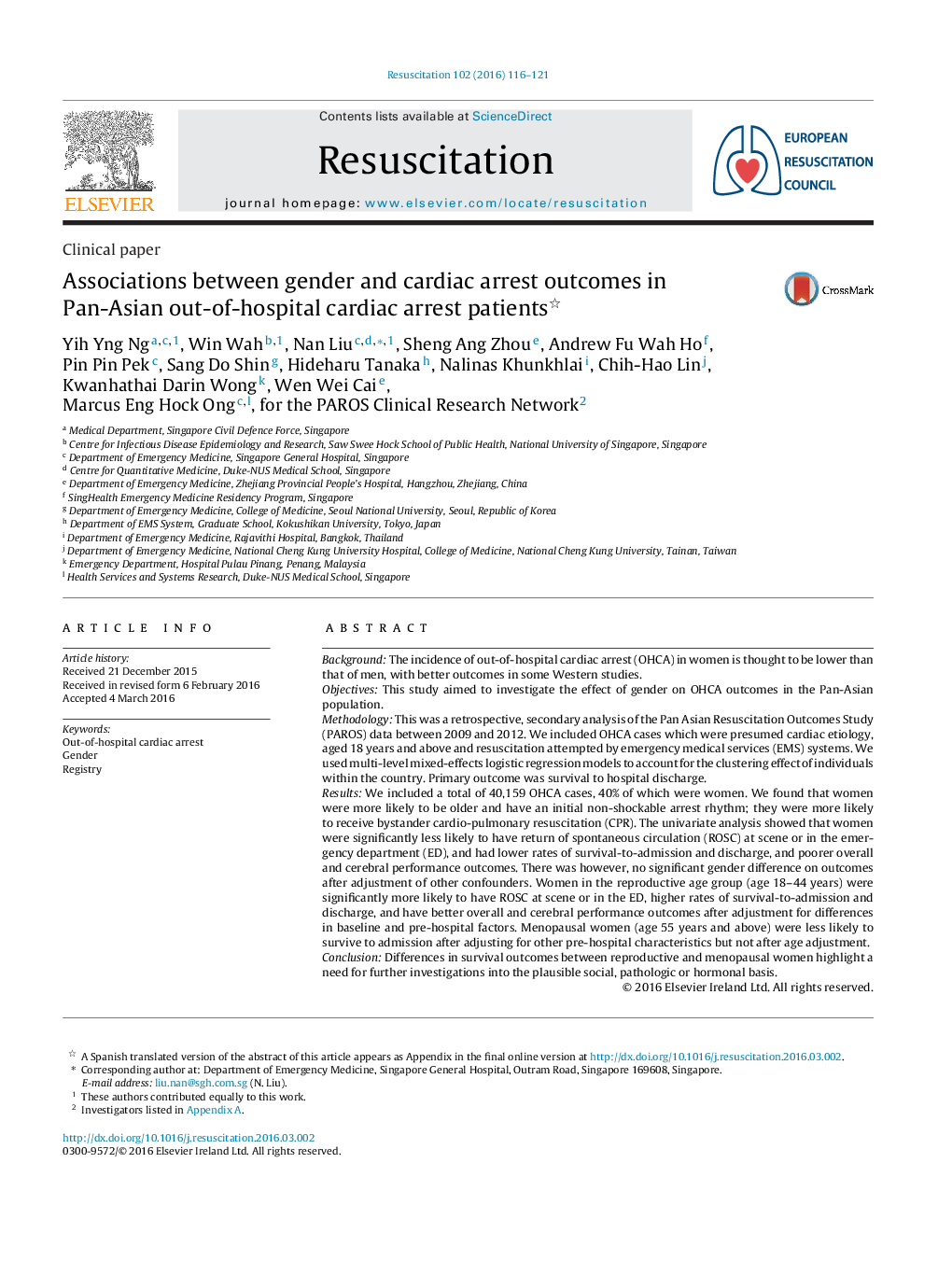| کد مقاله | کد نشریه | سال انتشار | مقاله انگلیسی | نسخه تمام متن |
|---|---|---|---|---|
| 3007781 | 1578982 | 2016 | 6 صفحه PDF | دانلود رایگان |
BackgroundThe incidence of out-of-hospital cardiac arrest (OHCA) in women is thought to be lower than that of men, with better outcomes in some Western studies.ObjectivesThis study aimed to investigate the effect of gender on OHCA outcomes in the Pan-Asian population.MethodologyThis was a retrospective, secondary analysis of the Pan Asian Resuscitation Outcomes Study (PAROS) data between 2009 and 2012. We included OHCA cases which were presumed cardiac etiology, aged 18 years and above and resuscitation attempted by emergency medical services (EMS) systems. We used multi-level mixed-effects logistic regression models to account for the clustering effect of individuals within the country. Primary outcome was survival to hospital discharge.ResultsWe included a total of 40,159 OHCA cases, 40% of which were women. We found that women were more likely to be older and have an initial non-shockable arrest rhythm; they were more likely to receive bystander cardio-pulmonary resuscitation (CPR). The univariate analysis showed that women were significantly less likely to have return of spontaneous circulation (ROSC) at scene or in the emergency department (ED), and had lower rates of survival-to-admission and discharge, and poorer overall and cerebral performance outcomes. There was however, no significant gender difference on outcomes after adjustment of other confounders. Women in the reproductive age group (age 18–44 years) were significantly more likely to have ROSC at scene or in the ED, higher rates of survival-to-admission and discharge, and have better overall and cerebral performance outcomes after adjustment for differences in baseline and pre-hospital factors. Menopausal women (age 55 years and above) were less likely to survive to admission after adjusting for other pre-hospital characteristics but not after age adjustment.ConclusionDifferences in survival outcomes between reproductive and menopausal women highlight a need for further investigations into the plausible social, pathologic or hormonal basis.
Journal: Resuscitation - Volume 102, May 2016, Pages 116–121
